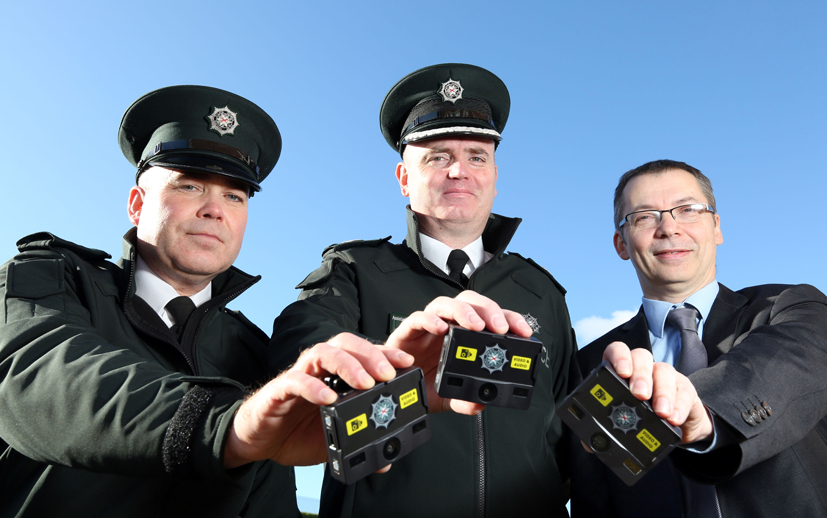The Police Service of Northern Ireland (PSNI) has appointed a supplier for body-worn video (BWV)
The Police Service of Northern Ireland (PSNI) has appointed a supplier for body-worn video (BWV) technology as it begins the next phase in the roll-out of cameras to frontline officers.
The Police Service of Northern Ireland (PSNI) has appointed a supplier for body-worn video (BWV) technology as it begins the next phase in the roll-out of cameras to frontline officers.
PSNI Assistant Chief Constable Mark Hamilton said a pilot last year confirmed that BWV had the potential to improve the quality of evidence provided by police officers and thereby increase the proportion of offences brought to justice.
Video evidence provides a compelling account of activities of suspects and enables the raw emotion and action from a scene to be replayed in the courts in a manner that could never be captured in a witness statement, he added
The cameras, to be supplied by Edinburgh-based BWV specialist Edesix, will be introduced on a phased basis across the force over coming months.
We are always striving to identify new processes to support the delivery of effective frontline policing. This includes the use of new and emerging technological solutions, said Mr Hamilton.
In 2014, we piloted the use of BWV in G District, which was one of our eight policing districts at that time. We were keen to establish what benefits this technology would bring in terms of supporting accountability, improving outcomes for victims of crime and streamlining criminal justice processes to produce speedier justice.
We also needed to understand the level of technological infrastructure that was required and what changes or upgrades we might have to implement, in order to facilitate the movement of this video footage from one station, or location, to another.
Mr Hamilton said on the basis of the pilot findings, a business case was submitted to the Department of Justice and funding was allocated to roll out BWV technology across the PSNI.
Richie McBride, managing director of Edesix, said the benefits of BWV technology in policing have been widely recognised.
BWV can be used to support the delivery of a transparent, accountable police service, from the perspective of both police officers and of the communities they serve. As a result, the technology is being actively used by a number of police services across the world, said Mr McBride.
Edesix will be working closely with the PSNI in the coming months to support the introduction of BWV technology across frontline policing. Given the size and scale of this project, and the training that will have to be undertaken by officers prior to using the equipment, the roll-out will be phased over a number of months.




